A Brief Guide To COP26: What You Need To Know
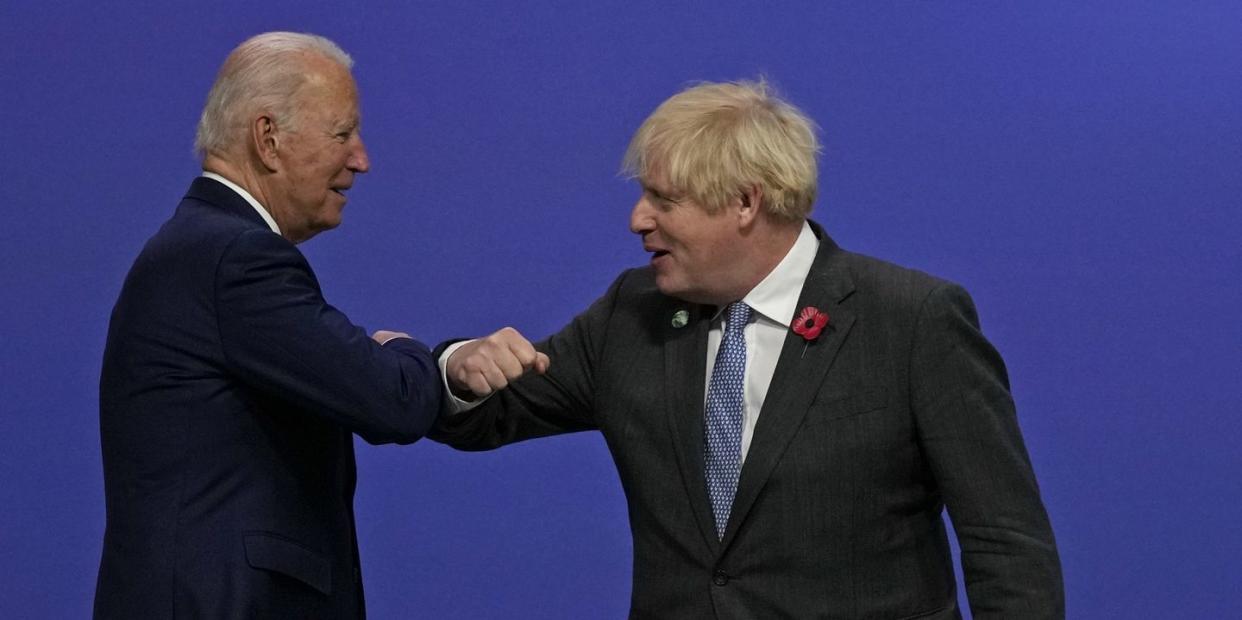
Nearly 120 world leaders have gathered in Glasgow to address the global crisis that is climate change.
Coming hot on the heels of a G20 summit that delivered mixed results on global warming - with leaders of the world's richest countries failing to agree on targets for things like ending coal power - the conference could be a crucial turning point in the fight to save the planet.
Here's everything we know about COP26 so far:
How long is COP26 on for?
The meeting is being held in Glasgow from October 31 to November 12, and could lead to major changes to our everyday lives.

What's it actually all about?
COP26, which stands for 'Conference of the Parties', is being held so that 200 countries can be asked for their plans to cut emissions by 2030.
Extreme weather events linked to climate change - including heatwaves, floods and forest fires - are becoming more and more frequent, with the past decade breaking records as the warmest ever. Governments agree urgent collective action is needed.
What will be decided?
Most countries have already set out their plans, but there could still be some surprises. We can expect talk of switching to electric cars, speeding up the phasing out of coal power, reducing deforestation and more.
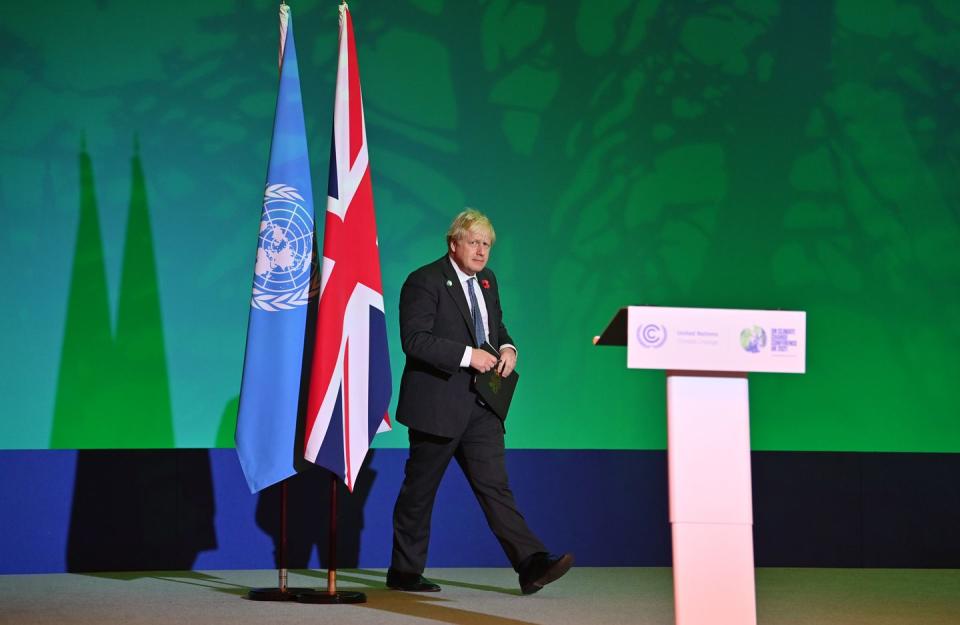
At the end of the conference, some form of declaration is expected, which every country will be required to sign.
On day three of COP26 Leonardo DiCaprio was seen at the conference, much to the delight of his fans.
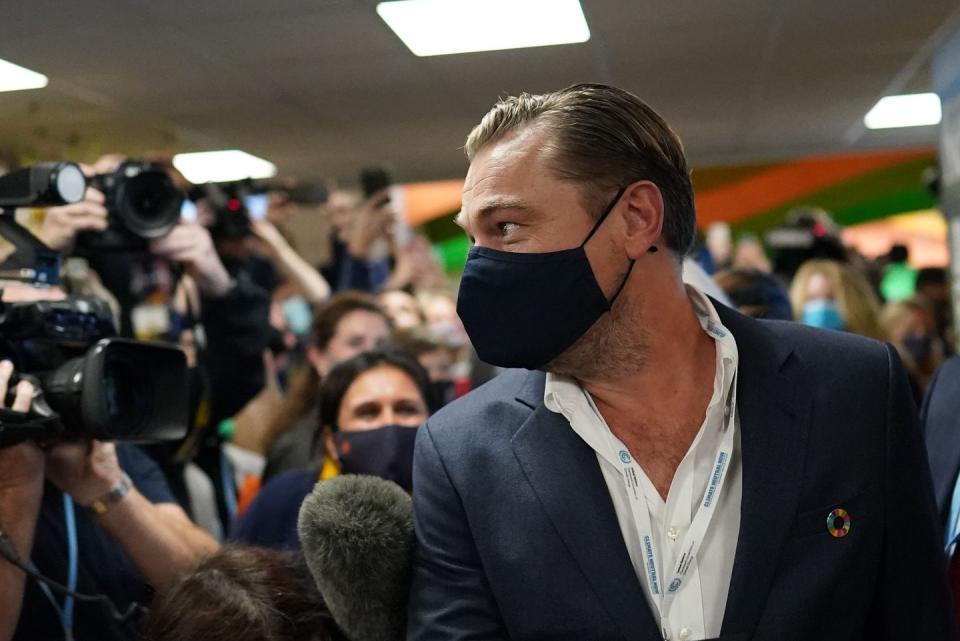
How does all this affect me?
Some commitments made in Glasgow could directly affect your daily life, and fast: it might change whether you drive a petrol car, for example, heat your home with a gas boiler or take as many flights.
What are the key takeaways?
Here's a rundown of all the most important things that have happened so far:
President Joe Biden's apology
Biden apologised to other world leaders that the United States withdrew from the Paris Agreement - which means countries have to keep making bigger emissions cuts until reaching net zero in 2050 - under the Trump administration.
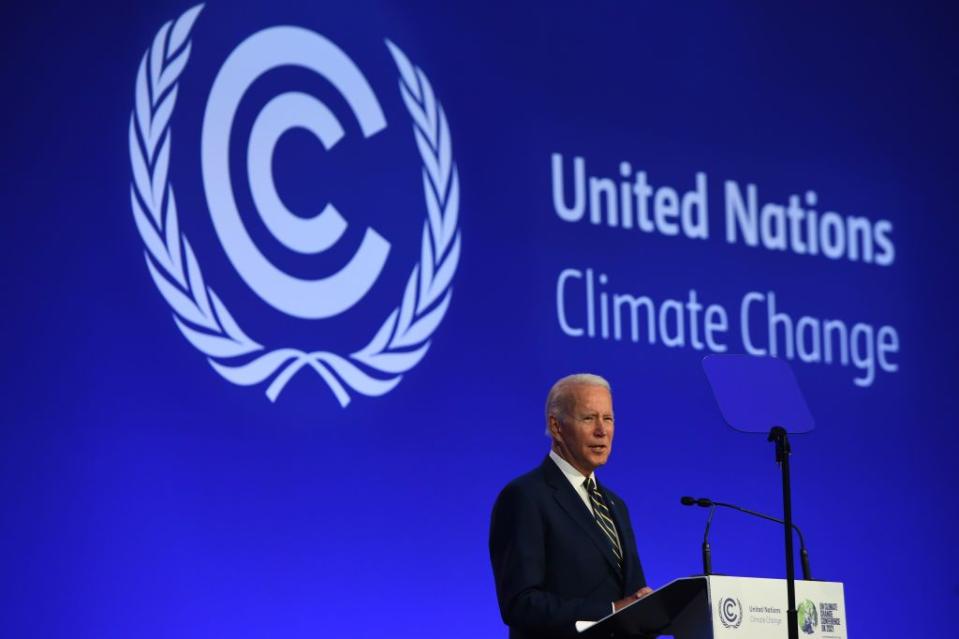
'I guess I shouldn't apologize, but I do apologize for the fact that the United States -- the last administration -- pulled out of the Paris Accords and put us sort of behind the 8 ball,' Biden said.
Biden reentered the agreement just hours after he was sworn into office in January.
Boris Johnson compared us all to James Bond
The UK's Prime Minister chose to invoke one of our best-loved figures in his speech, telling fellow heads of government that they can be just like 007.
Let's make this the moment when we began irrefutably to turn the tide and to begin the fightback against climate change #COP26 pic.twitter.com/6GH2rq3vFf
— UK Prime Minister (@10DowningStreet) November 1, 2021
'We may not feel much like James Bond -- not all of us necessarily look like James Bond -- but we have the opportunity and we have the duty to make this summit the moment when humanity finally began, began to defuse that bomb,' he said.
'The Doomsday device is real, and the clock is ticking to the furious rhythm of hundreds of billions of turbines and systems ... covering the Earth in a suffocating blanket of CO2.'
National treasure David Attenborough has already made his mark
In an impassioned speech which drew a standing ovation, he said the fate of future generations must give delegates the impetus 'to rewrite our story'.
“Is this how our story ends?”
Powerful moment from #COP26 People’s Advocate, Sir David Attenborough from yesterday’s Opening Ceremony.#ClimateAction #TogetherForOurPlanet pic.twitter.com/ky3PvVOo56— COP26 (@COP26) November 2, 2021
The 95-year-old warned that humanity was 'already in trouble' because of rising carbon levels in the atmosphere. Sir David spoke for seven minutes alongside screens showing a graph that tracked the rise of carbon concentration in the Earth's atmosphere.
The Royal Family joined forces - and Queen Elizabeth II made a groundbreaking speech
Prince Charles urged leaders to work together, while Prince William tweeted that he was 'hopeful' about what could be achieved. He and the Duchess of Cambridge have been making regular appearances, including at Clyde Scouts.
#COP26 is a landmark moment for the future of our planet — I’m proud that our @EarthshotPrize Finalists will be joining me in Glasgow to show the world that there is reason to be optimistic.
I’m hopeful about what can be achieved. W— The Duke and Duchess of Cambridge (@KensingtonRoyal) November 1, 2021
The 15 finalists of the first year of the Earthshot Prize, named in September, will attend a reception hosted by both Prince William and Prince Charles at The Clydeside Distillery.
Prince William launched the Earthshot Prize in October 2020 in a bid to inspire and promote groundbreaking projects aiming at fighting the five most pressing environmental issues the planet is currently experiencing.
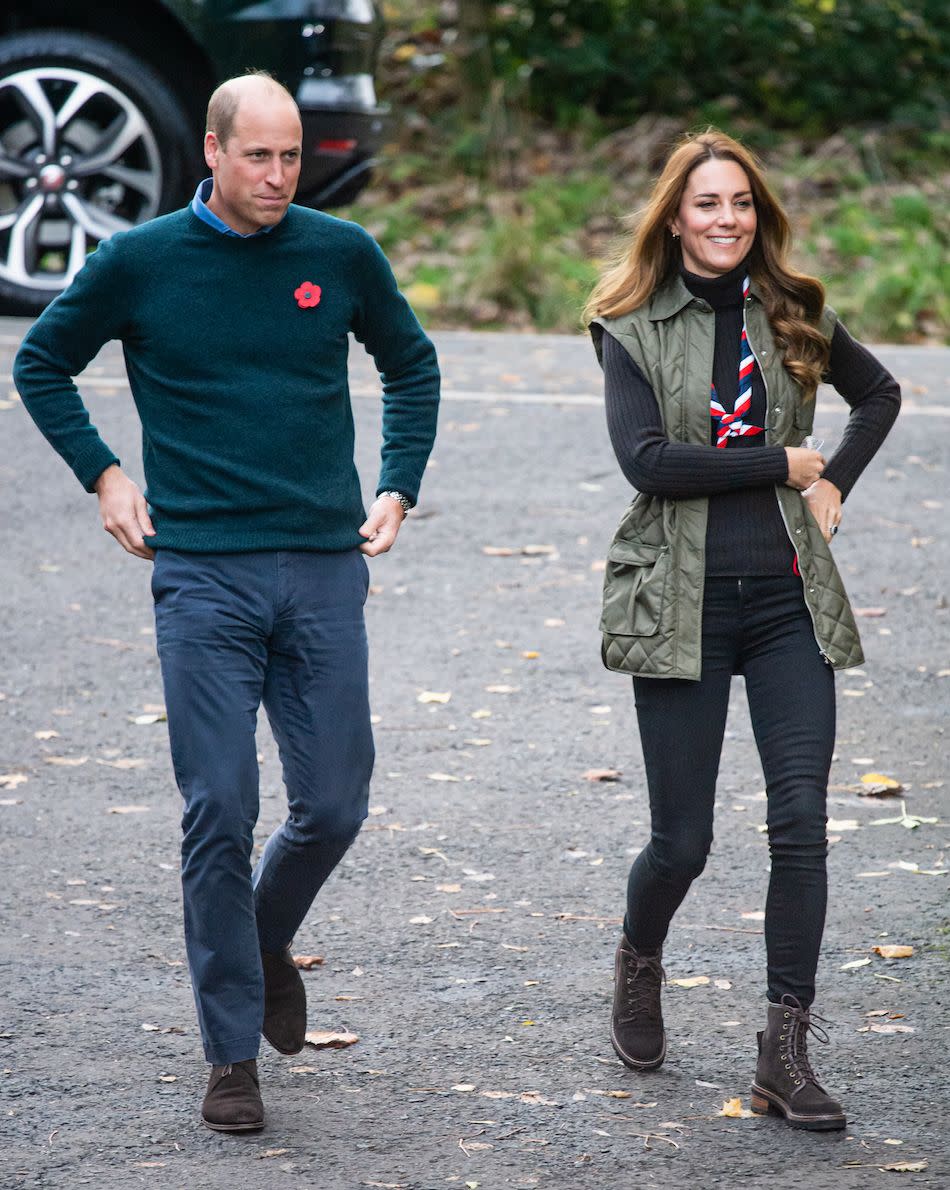
For her part, the Queen welcomed world leaders with a video address, during which she made a rousing speech.
'For more than seventy years, I have been lucky to meet and to know many of the world's great leaders. And I have perhaps come to understand a little about what made them special,' the Queen said.
'It has sometimes been observed that what leaders do for their people today is government and politics. But what they do for the people of tomorrow -- that is statesmanship.'
"I, for one, hope that this conference will be one of those rare occasions where everyone will have the chance to rise above the politics of the moment, and achieve true statesmanship.”
The Queen has delivered a video message to mark the start of #COP26— The Royal Family (@RoyalFamily) November 1, 2021
India's net-zero promise
Indian PM Narendra Modi made headlines by announcing a net-zero emissions target, pledging that India will become carbon neutral by 2070.
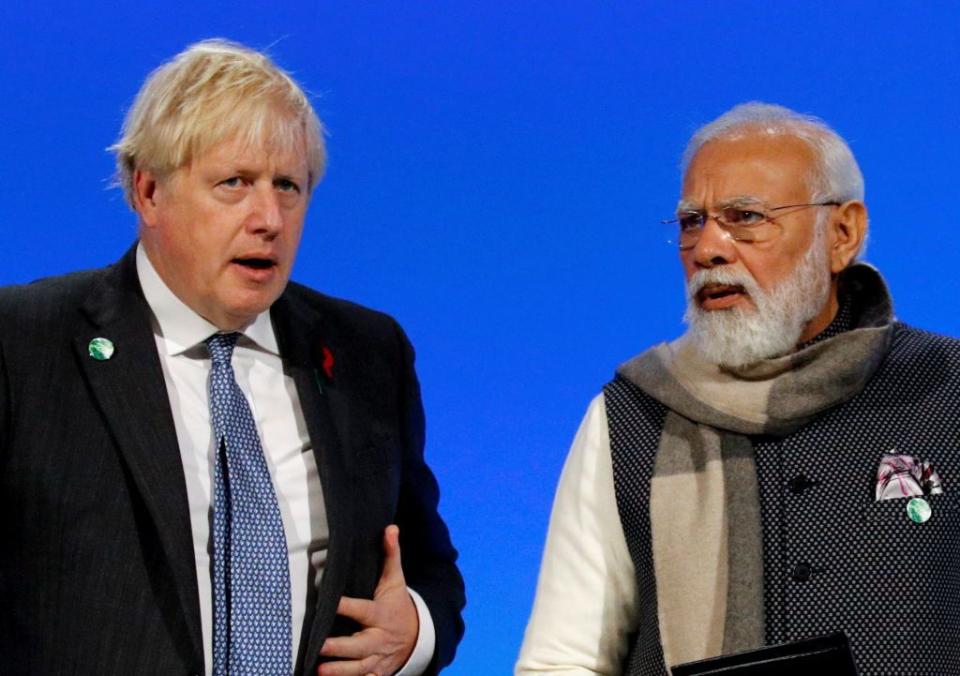
While it's a major announcement, the target is a decade later than China's, and two decades after the rest of the world. However, it's definitely still something: with India's announcement, all of the world's top 10 coal-power countries have committed to net-zero, according to climate think tank Ember.
Leaders from top polluting nations skip the summit
Xi Jinping, president of top polluting nation China, and Russian president Vladimir Putin were not in Glasgow.
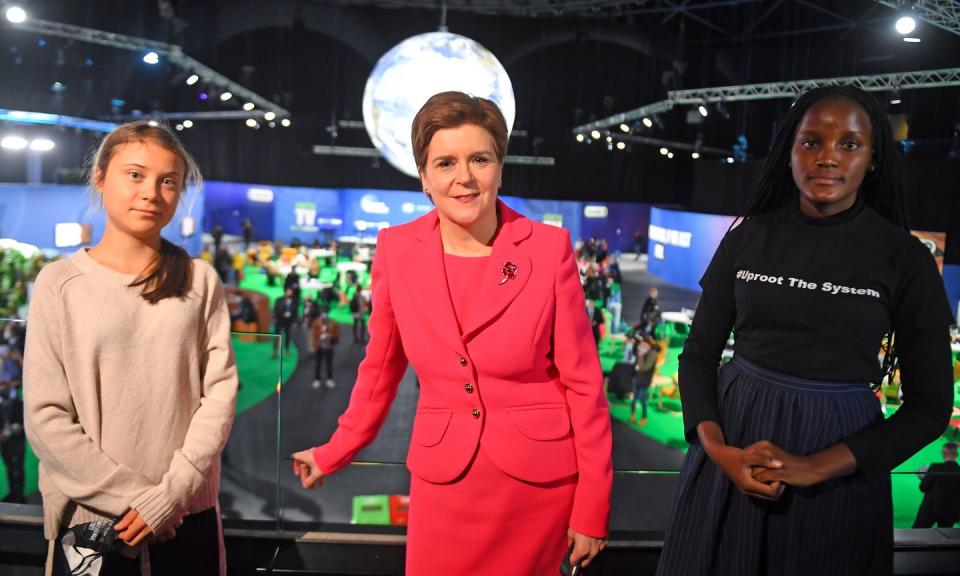
Turkish President Recep Tayyip Erdogan pulled out of the conference at the last minute.
Several other major emerging economies are also skipping Glasgow, including those from Russia, Mexico, Brazil and South Africa. That leaves Modi the only leader present from the so-called BRICS nations, which account for more than 40% of global emissions.
World leaders promise to end deforestation by 2030
More than 100 world leaders have promised to end and reverse deforestation by 2030, in the climate summit's first major deal.
Brazil - where stretches of the Amazon rainforest have been cut down - was among the signatories. The pledge includes almost £14bn ($19.2bn) of public and private funds.
Boris Johnson said 'more leaders than ever before' - a total of 110 - had made the 'landmark' commitment.
'We have to stop the devastating loss of our forests,' he said, and 'end the role of humanity as nature's conqueror, and instead become nature's custodian'.
More than 100 countries pledge to curb methane emissions
More than 100 countries, including EU nations, have pledged to curb methane emissions by 30 per cent by 2030.
It was the first time in recent history that COP has held a major event on methane, and 15 of the world's biggest emitters have signed up.
UK firms will be forced to show how they'll hit net zero
Most big UK firms and financial institutions will be forced to show how they intend to hit climate change targets, under Chancellor Rishi Sunak's instruction.
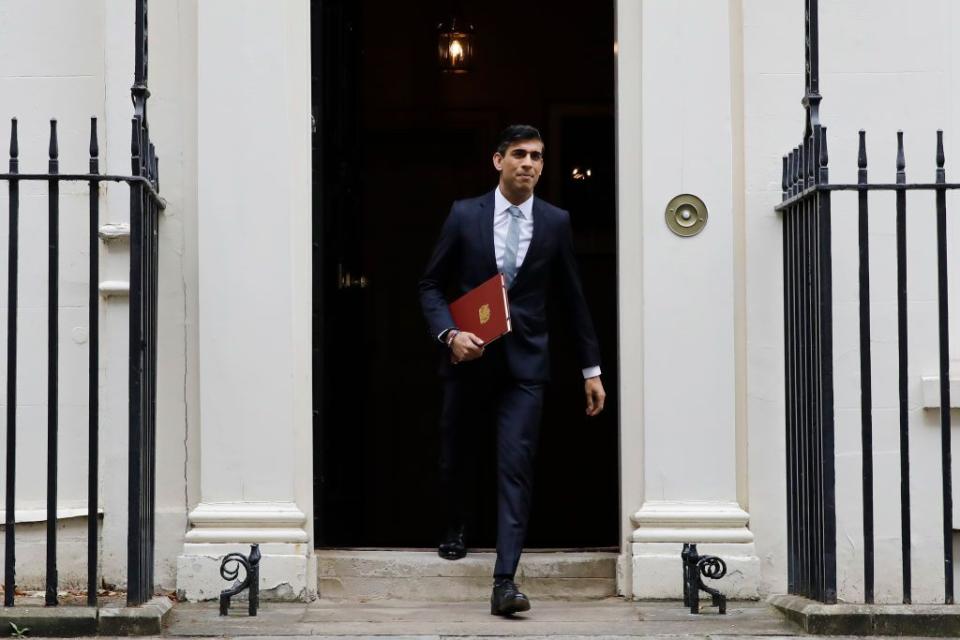
By 2023, they'll all have to set out detailed (and public) plans for how they'll move to a low carbon future, in line with the UK's 2050 net-zero target.
Sunak wants to make the UK the first net-zero financial centre.
We'll keep updating this story as the summit continues.
You Might Also Like


